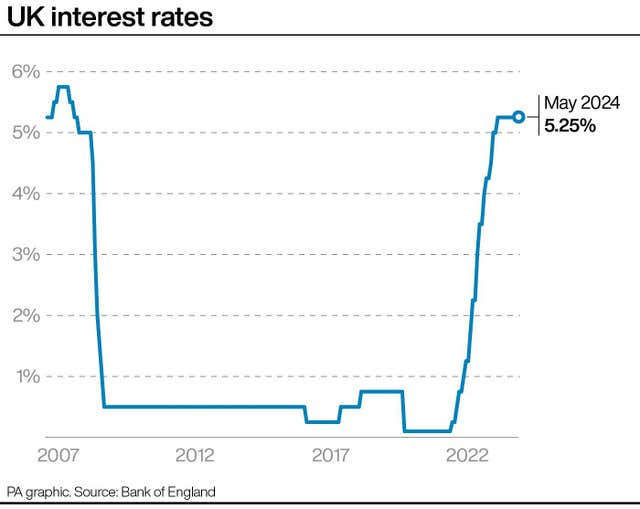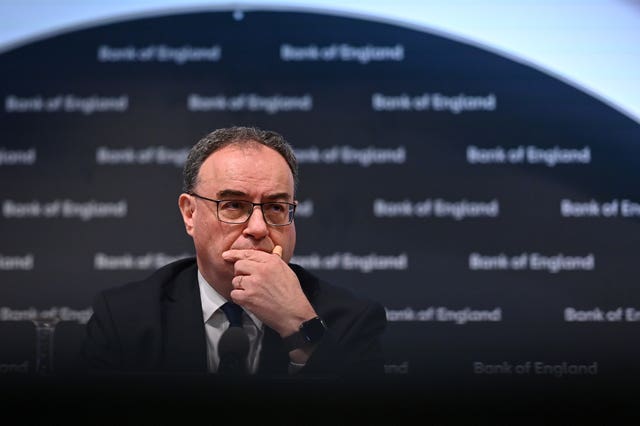Interest rates held at 5.25% but Bank of England ‘optimistic’ about cuts
The central bank has again voted to freeze rates.

The Bank of England has decided to keep UK interest rates unchanged, but gave a new sense of optimism that borrowing costs could soon be cut if inflation is reined in.
While the central bank voted to hold rates at 5.25%, governor Andrew Bailey said he is “optimistic that things are moving in the right direction”.
Mr Bailey said there has been “encouraging news” on inflation, which the Bank expects to come close to its 2% target between April and June.
But he added: “We need to see more evidence that inflation will stay low before we can cut interest rates.”
In a strong signal that the tide is turning among the rate-setters, two members of the Bank’s nine-person Monetary Policy Committee (MPC) voted for interest rates to be cut by 0.25 percentage points, to 5%.
The MPC members, Swati Dhingra and Dave Ramsden, feel Consumer Prices Index (CPI) inflation is already on a firm downward path and there is no need to delay reducing borrowing costs.
But the committee signalled it is looking for greater progress on key economic indicators, which are continuing to put pressure on the overall inflation rate.
These include wage growth and services inflation, which remain relatively persistent.

Crucially, the MPC will be able to assess upcoming data releases, including April and May’s official inflation and jobs figures, before its next meeting in June.
Meanwhile, the Bank of England slightly upgraded its forecast for UK economic growth.
In its latest Monetary Policy Report, it said gross domestic product (GDP) will increase 0.5% this year and 1% in 2025, both 0.25 percentage points higher than the last estimates published in February.
The improved outlook reflects higher estimates for population growth, which will boost productivity, as well as energy costs coming down.

It also expects some positive impact from the Government’s recent tax cuts, which is set to boost GDP by more than 0.25 percentage points compared with February projections.
Over the next few years, CPI inflation is expected to fall to a lower level than prior predictions, dropping below-target to 1.5% across 2026.
In the shorter-term, CPI is set to hit the 2% target between April and June, before rising to 2.6% by the end of the year.
There are some risks to the forecast, including geopolitical tensions intensifying amid conflict in the Middle East, although this has so far had a relatively limited impact on trade and oil prices, according to the report.





